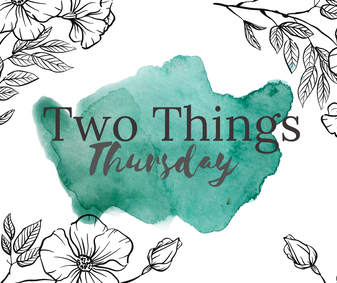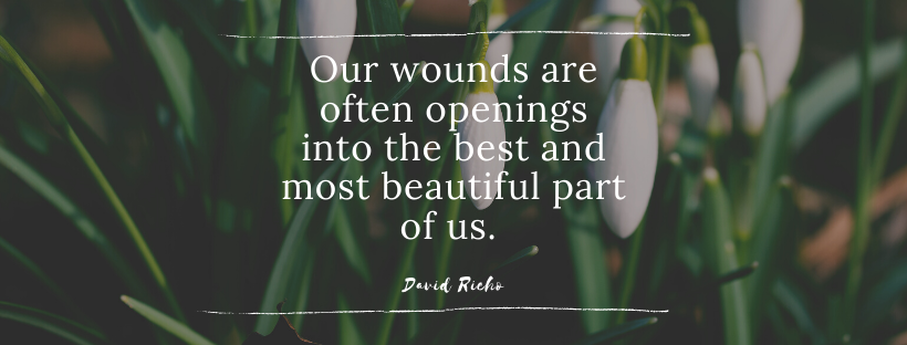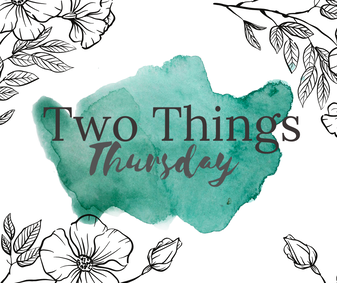|
Happy last day of June and happy last day of Pride month! As promised last week, today we are focusing on LGBTQ+ and pregnancy and postpartum. I'll be honest, there isn't a lot of great research out there; a lot of research on mental health and pregnancy and postpartum period focuses of cis, heterosexual women (and often white, married women at that). What little bit we do have suggests that lesbian, queer and gay women may be at an increased risks for struggling with postpartum depression due to potential lack of support, lack of resources and potentially more difficult process of conceiving a pregnancy if they use IVF or a sperm donor. There is even less information about outcomes for trans, two spirit or gender non-binary folx. LGBTQ Health is currently one of the few groups trying to find out more about postpartum well being. On a positive note though, there is some great research out there about children raised in LGBTQ+ families having really great emotional development and often times being more supportive than heterosexual families. So where does that leave us? One really important thing for anyone postpartum is having is having good support. Some really good online resources include -LGTBA Perinatal Wellness Center https://lgbtqperinatalwellnesscenter.org/ -Colage (parenting support for LGBTQ+) https://www.colage.org/ It's also important to find medical providers who are supportive and safe; there has been a push in the last few years in the OB-GYN world to more towards more inclusive care and part of that includes moving away from language like "pregnant woman" and "mother/father" into "pregnant person/birthing person" and "partner/spouse." Obviously, words are nice but really accepting environments also require ongoing training and willingness for providers to own up to past mistakes. It may be extra important then to shop around and ask for referrals that are safe and LGBTQ+ aligned. Bloom and thrive and see you in July!
0 Comments
Trigger Warning; this post discusses sexual assault and domestic violence/intimate partner violence
Also, I use the word folx which some of you may love and some of you may be so confused about and think the k on my keyboard is broken (don't worry, it's working!); you can find more info about this word here https://forfolxsake.com/what-does-the-term-folx-mean/ Happy Pride! One really important part of Pride for a lot of us is education; education about history of the LGBTQ+ (Lesbian, Gay, Bisexual, Trans and Queer) movement including things like Stonewall or pioneers who lead for civil rights such as Harvey Milk, James Baldwin, and Audre Lorde. Another important focus for a lot of us is recognizing barriers, injustices and mistreatment that impact this group more than others. For me as a therapist that means talking about abuse, mental health and trauma. We know that for queer people abuse is a lot more common, especially for trans folx; 47% of transgender people reported being sexually assaulted according to the 2015 US Transgender Survey. Lesbian and bisexual women also report higher rates of sexual assault than straight women. Domestic violence or intimate partner violence (a term that was changed partially to reflect that people of all genders and types of relationship can experience abuse) also impacts the LGBTQ+ community. While all the types of abuse we see in heterosexual relationship exists too, LGBTQ+ folx can also experience extra homophobia such as being threatened with being "outed" to bosses, parents or other people that may not know. Abusers can also say someone isn't "gay enough," "trans enough" or "queer enough" as a way of emotional abuse that makes someone doubt or feel like they aren't being "gay the right way." An abuser may also threaten that there won't be any services or resources if the survivor choose to leave the relationship. Sadly, this is often the case as a lot of shelters are still only for men or women and don't have services that are safe for queer survivors. But there are some really good resources out there! Sadly, a lot of these are at the national level instead of in local communities especially if you don't live in a major city. Some of the ones I really recommend include -The National Domestic Violence Hotline; 1-800-799-7233 https://www.thehotline.org/ -RAINN (The National Sexual Abuse Hotline); 800-656-4673 https://www.rainn.org/ -The Trevor Project (for LGBTQ Youth); 1-866-488-7386 https://www.thetrevorproject.org/ -FORGE (Trans and Gender Noncomforming Survivors of Abuse); https://forge-forward.org/ Of course, Pride isn't just supposed to be all down and bad things; stay tuned for the second post for Pride focusing on pregnancy and postpartum for same-sex couples and queer folx. Bloom and Thrive.  Happy Thursday! I hope your week is going great! Today on Two Things we are talking about saying no. Man, if there is one thing I hear as a therapist over and over again it's not knowing how to say no. Especially for new parents and survivors of abuse, saying no is SO HARD. So here are two tips to help you out. 1. Big secret; it gets easier with practice! So practice with little things; when someone in a store asks if you need help instead of saying "I'm just browsing" or "I'm good" try just "no thank you." Practice with family and friends saying no; you can even give them a heads up that you are practicing if you are super worried about hurting feelings by saying no. It will get easier. 2. Try just saying "no" or "no thank you" and leaving it at that. A lot of time, especially for us women, we are use to adding a lot of things to our nos. We say "I'm so sorry!" or "I wish I could" or make up really elaborate excuses. A lot of times, a plain "no" will work best and doesn't leave wiggle room. I think a lot of us have had the experience of thinking we are going to say no to something and slowly being talked into a yes. Again, this gets easier with practice, so keep trying! You've got this, go bloom and thrive!  Trigger Warning; this post mentions rape/sexual assault and abuse You've probably heard the word trauma before; maybe from things like trauma centers for hospitals or about soldiers returning from war. But what does it mean? For us therapist we have an "official" trauma definition from our big diagnosis manual, the DSM. In there, trauma is defined as "exposure to actual or threatened death, serious injury, or sexual violence." That's a lot to take in! And you might be thinking that there are some things that don't quite fit in this definition, for example where would emotional abuse or some types of neglect fit in? As a trauma therapist I like to talk about trauma this way; we like to think of our brain as this orderly place where everything is sorted and stored so we can get memories anytime we want. The more though we learn about memory, we are finding this isn't quite true especially with trauma; for whatever reason these memories don't get stored right. Sometimes with these situations, we maybe felt like we were about ready to fight, run or we just froze up. Because these memories weren't stored right, they sometimes come up at a totally wrong time. An example of this may be for someone who was abused, when they see a stranger who looks like their abuser on the street, their heart beats faster, memories start going through their head and they feel like running. A few things to note about trauma though; first, one thing that is traumatic to one person may not be traumatic to others. Trauma is very subjective which makes it hard for us to make a specific definition. For example, two people may be in the same car accident and one develops trauma symptoms and one doesn't. Second, trauma is super treatable! Since we started researching trauma, we've found a lot of treatments to manage it including types of therapy like EMDR or trauma focused CBT and medication. A lot of people survive through trauma and while they don't forget what happened to them, are able to go on and live happy, fulfilling lives! Are there other things you want to know about trauma? Feel free to leave them in the comments!  It’s Thursday! You’re almost done with your week! But what if you are having trouble sleeping? Maybe you can’t fall asleep because of everything on your mind? Two tips 1. Create a bedtime routine and STICK TO IT. Maybe you take a bath, drink some tea or (my favorite) read a book. Whatever it is pick something soothing and calm (not the time for a Peloton workout!) and relax. 2. If your brain is racing, try a brain dump; grab a pen and a blank piece of paper and take 5-10 minutes to write down everything you are thinking about. Worried about forgetting to pay your water bill? Write it down. Still upset about a conversation that didn’t go well? Write it down. Once you’re done, put the paper away (ps this is a great use for the drawer of your nightstand) and catch up on zzz’s. Sweet dreams! |
ArchivesCategories
All
|

 RSS Feed
RSS Feed
